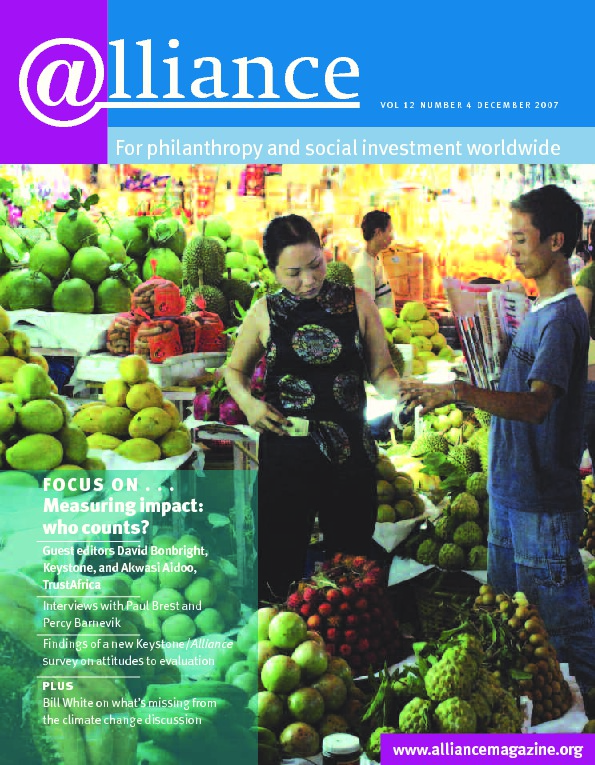The European Venture Philanthropy Association (EVPA) held its third annual conference in Madrid on 25 October. It was attended by almost 300 people from 30 countries, including the US, Latin America, China and South Africa as well as Western and Eastern Europe. Some were old hands at venture philanthropy, but many were newcomers to what is clearly a growing field: EVPA membership has grown rapidly over the past three years, and now stands at 75 members from 17 countries.
There were three important themes running through the conference. First, the ongoing debate about the distinctions between ‘venture’ and ‘traditional’ philanthropy. This is important in contributing to more critical thinking about philanthropy as well as challenging venture philanthropists to demonstrate the value of what they do. In practice cooperation and cross-fertilization between established foundations and venture philanthropists has always been an important aspect of EVPA’s role, and was evident at the conference.
The second theme was the complexity of managing a diversity of relationships across different sectors and fields. Venture philanthropy organizations have positioned themselves as a hub between individual and institutional donors, professional experts and advisers, policy entrepreneurs and decisionmakers, and a wide range of social causes and different types of non-profit organization. The culture and language of all these arenas is different. This challenges the honesty and openness of all the people involved to talk frankly, to admit to misunderstandings, and to find ways of working together constructively.
Lastly, European venture philanthropists are starting to accumulate experience and knowledge, and they are willing to share lessons and learn from one another. To date most of the models have been American. Even though the dialogue between the US and Europe continues to be important, for the first time European experiences can be put to the top of the agenda. The willingness of venture philanthropists to talk openly at the conference about their failures and their disappointments as well as their successes and hopes was refreshing and encouraging.
Subscribe now from only £45 a year!
This article is only available for our subscribers
Existing users can login here


